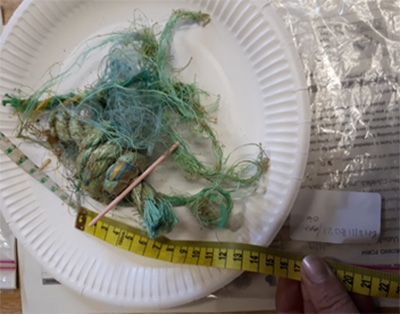Sheringham Shoal grant supports the study of microplastics in the North Norfolk environment
The planet’s use of plastics has come under much scrutiny in recent years, and particular attention is being paid to the damage caused in the marine environment by microplastics.
Microplastics are defined as all forms of plastics less than 5mm in size. They can enter the oceans as primary microplastics such as beads from personal care products and micro fibres from clothes or as secondary micro-plastics which are derived from larger plastic items, such as drink bottles, which slowly get broken into smaller pieces.
Many microplastics find their way into the sea from the waste water systems which feed into rivers, and during the 2019 Spring and Summer school terms the Norfolk Rivers Trust has utilised a grant from the Sheringham Shoal Community Fund to work with four North Norfolk primary schools on a project to investigate microplastics in the local environment.
The project involved over 150 pupils aged from 7-10 years from Blakeney, Holt, Kelling and Walsingham schools participating in a national campaign called the Big Microplastics Survey, which is managed by Just One Ocean and the University of Plymouth. The project, which was managed by the Norfolk Rivers Trust education team, centred on measuring the amount of microplastic pollution on the beaches of North Norfolk.

Sorting the samples (image courtesy of Norfolk Rivers Trust)
There were five days of activities for each school spread over the school term, including a beach litter pick and a plastic sorting exercise as prescribed by the Big Microplastics Survey. Samples collected on the beach pick were then sent to Just One Ocean for analysis.
In the classroom the pupils were taught how to conduct a survey using scientific equipment as well as learning about water quality in rivers and seas and the importance of protecting the aquatic environment for the native wild life and for human health and food production.
Ursula Juta from the Norfolk Rivers Trust felt the children engaged very well with the project, saying:
“The main find during the beach pick was polystyrene, and during the sorting activities we discussed ways to try and minimise the volume of plastic entering the environment, focusing on how best to eliminate its use altogether as so little of it is actually recycled.”
“This is a highly topical project,” said Karl Butler, the Power Plant Manager at the Sheringham Shoal Offshore Wind Farm, “and it is great that the grant from the Sheringham Shoal Community Fund has helped enlighten a large number of children in the local North Norfolk community about the marine environment issues associated with plastic. I hope some of them will be encouraging their families to take action.”
For further information please contact:
Nigel Tompkins
New Ideas for Business
T: 01263 822427
M: 07860 206565
E: nigel@ni4b.co.uk